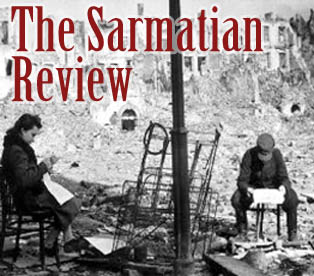| This Issue | Back Issues | Editorial Board | Contact Information |

April 2007
Volume XXVII, No. 2
“Location, location, location” is the motto of those who want to set up shop in a secure and profitable place. The issue of location is understood by businessmen, but the business of country location is understood-or cared about-by very few in political or academic America. Yet one should factor the political neighborhood into an assessment of Poland’s performance.
Poland’s geographical location has made it easy for aggressive peoples and countries to invade it and try to make of Poles a countryless nation. These invasions have cost Poland trillions of dollars in damage. Between 1939-1989 Poland was in the grip of two colonial powers: Nazi Germany in the Second World War, and the Soviet Union during and after the war. Poles are proud to have resisted both invasions, and this amply documented resistance gives them the right to self-esteem and national pride. However, those who value only power are not impressed, especially because Poles have failed to create a discourse in English that would counter so many mendacious or simply ignorant books and opinions circulating in America. Edward Said had a word for it: orientalism, or interpreting a people without including that people’s input in the interpretation. We would like to state that while orientalism has somewhat retreated with regard to third world countries, it is alive and well concerning Poland. And we repeat, Poles have not done well in countering orientalism by having their own voices heard and available in languages other than Polish.
The years 1939-89 cost two generations of Poles dearly. The country’s infrastructure, education, health, and life itself suffered in ways that have not been articulated in American scholarship. Now, sixty years after the war ended, the descendants of some of the invaders cast a wistful glance eastward and point out that the invaders have suffered also! As Prime Minister Kaczyński states in the interview, since 1945 the consecutive Warsaw governments tacitly consented to any interpretation of what happened in the twentieth century as long as such interpretations brought short-term gains for themselves. The net result is that Poles have been taken unawares by the recent rise in Germany of an unbelievable discourse-directed at Poland-that demands satisfaction for those Germans who lost their property in territories taken away from Germany by the Great Powers after the Second World War. Interestingly, we have not heard of Germans suing the Russians in the Strasbourg court, only the Poles. Must Poland continue to pay for Hitler’s war?
Back to the April 2007 Issue
The Sarmatian Review
sarmatia@rice.edu
Last updated 4/3/07